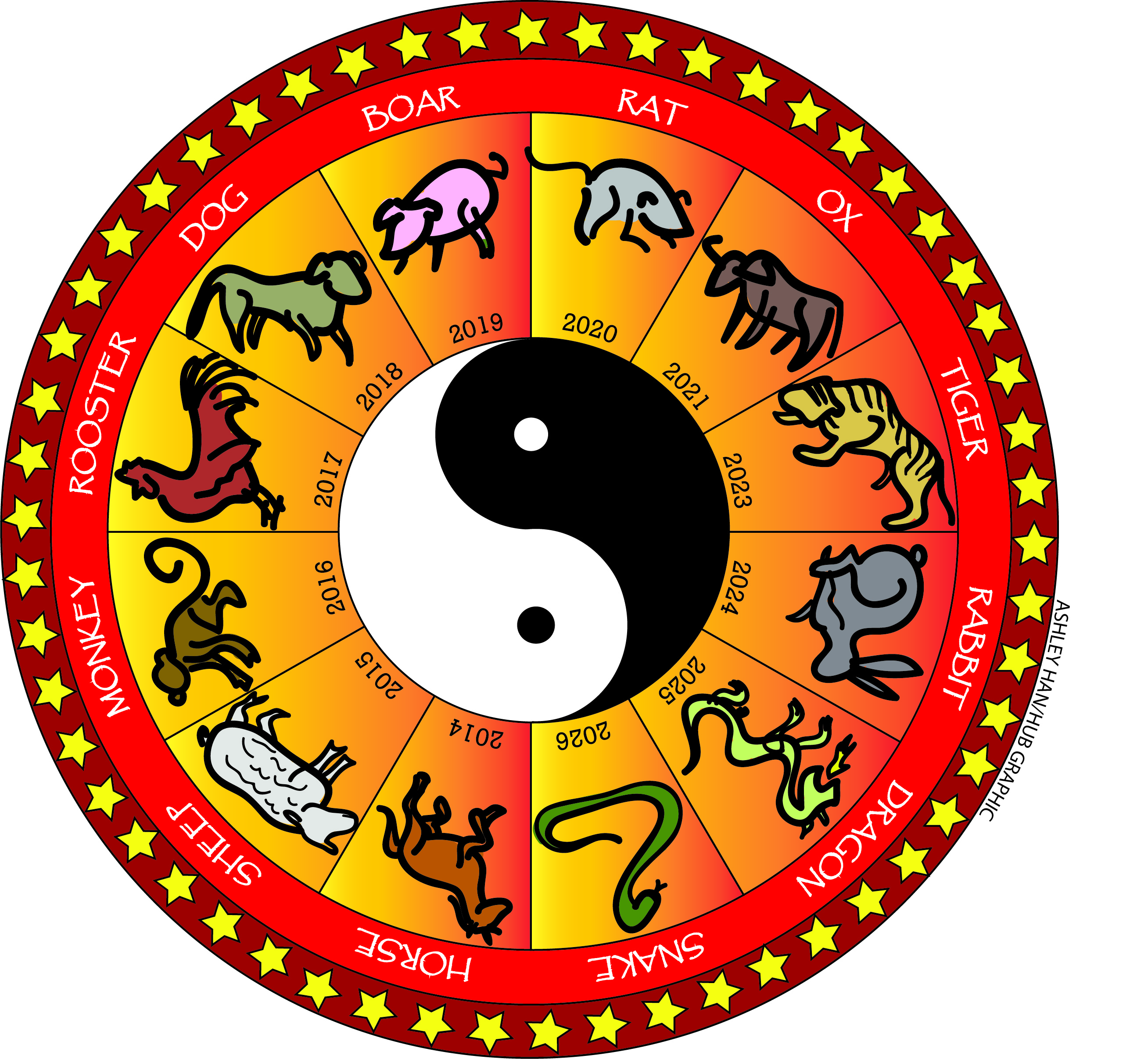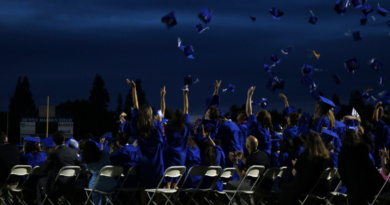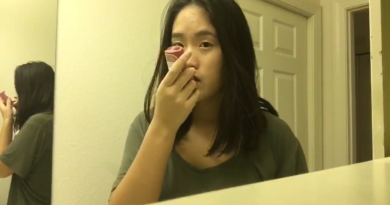Davis honors Chinese New Year
By Ashley Han,
Bluedevilhub.com Editor–
Chinese New Year is the first day of the lunar calendar and one of the most important holidays in the Chinese culture. This holiday originates from an ancient legend of a monster named Nian that would terrorize people every New Year’s Eve and demolish a nearby village.
People would flee their homes and hide until an old wise man came to the town and asked for a room and promised he could stop Nian from destroying the village. He stayed at an old lady’s house while the rest of the town fled and attached red paper on the door, exploded firecrackers and wore red clothing.
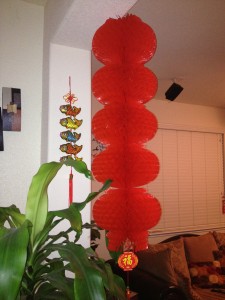
When Nian arrived, he was terrified of the old man for he feared the color red, fire and loud noises. The village celebrated and every year they would stick red paper on their doors, explode fire crackers to keep Nian away.
Although there are many variations of the legend of Nian or how Chinese New Year originated, an annual tradition has been celebrated for generations. Families in Davis celebrate Chinese New Year by gathering with families, handing out red envelopes and enjoying a nice dinner.
Junior Jessie Wang celebrates this holiday by watching the Chinese New Year performance on China Central Television (CCTV) and having a big family dinner.
“I think [Chinese New Year is] important because it’s another holiday that calls for family reunion. People don’t usually have time for their families so it’s like a reminder,” Wang said.
According to senior Daniel Zhu, Chinese New Year represents a new year and a chance to try new things and meet new people; culturally it is a time for family reunions and a time to honor ancestors. Zhu helps out at NewStar Chinese School and he enjoys teaching the children.
“Traditionally my family and I send greetings to relatives in China, get red envelopes, watch the Chinese New Year CCTV special and eat a lot of food. We usually go to a party with family members and friends,” Zhu said.
DHS Chinese teacher, Angela Cheung usually gathers with her family and engage in activities like pasting spring festival couplets, paper cutting and setting off fireworks. Some of Cheung’s favorite things to do on this day are wear new clothes and eat dumplings and New Year cake.
“As a child, I always receive red envelope “红包” (monetary gift) from my family. Even now, I still receive blessing from my family as well as red envelope,” Cheung said.
Cheung encourages her students to put on their favorite outfits on Chinese New Year; she will pass out “lucky candies” to her students. The Chinese class students will be performing in the quad during lunch.
Other students like junior Bijan Varjavand also participate in the celebration of Chinese New Year. This is Varjavand’s first year attending NewStar and he looks forward to performing with all the NewStar students on Chinese New Year day.
“I enjoy learning Chinese. I think it’s an interesting language and in the future I actually plan to go to China,” Varjavand said.
However, some Chinese students at DHS miss the celebration of the elaborate, exciting celebration of Chinese New Year in China.
Junior Diana Jian and her family clean and then decorate their house by posting the Chinese character “福” (Fu) meaning happiness upside down so the happiness will come back to them, duilian (antithetical couplet), lantern and paper cutting.
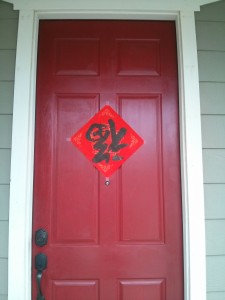
“[Back in China] my grandfather would always make a table full of gorgeous Chinese dishes. The dishes might be different every year, but we would always have a cooked whole fish (with head and tails) on the table. “Fish” in Chinese sounds similar to “leftovers”, therefore, having a whole fish as one of our dishes represents that we will not lose everything (or bankrupt) in coming year,” Jian said.
Jian recalls the festive atmosphere China transformed into around the time of Chinese New Year. Everywhere would be decorated in the color red and they would explode huge fireworks; however, for Jian, her excitement is diminished in America.
“Here in America, I can only feel the typical Chinese New Year atmosphere in Chinatown. I just miss the huge family reunions we had [and] the firework that we did, all the excitement [but] Chinese New Year is the biggest time that provides an opportunity for us to rethink and to treasure the value of family,” Jian said.
Sophomore Linda Xu also misses the bustling thrill of New Years in China. In America, Xu and her family would make dumplings and watch Chinese TV until the morning and then the children will receive money in red envelops from the elders.
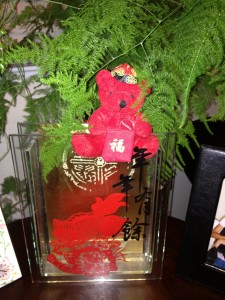
“The difference between American and China [is that] we can not play [with] firecrackers here, and there are few people [who] celebrate Chinese New Year, so I can’t feel the atmosphere of the New Year; it’s a […] pity,” Xu said.
Family reunion is important to Xu and she hopes this year her family will have a healthy year.
“My grandmother is the year of horse, I hope she could keep healthy,” Xu said.
Senior Michael Zhao also celebrates this event similarly with other Chinese students such as watching CCTV, eating dumplings and receiving red envelopes. Zhao believes Chinese New Year brings him closer to his culture.
“Chinese New Year is really the only time of the year where I can celebrate being Chinese. I feel like when living in America I’m drawn more to the American holidays like Thanksgiving and Christmas, and don’t get much time to celebrate my own culture. Having a New Year’s that’s different than the other cultures lets me feel like I’m connecting with my Chinese heritage,” Zhao said.
Cheung as well as Xu, Jian, Wang, Zhao, and Zhu all value family gathering and look forward to celebrating the Year of the Horse.
“I want to wish everyone a happy, healthy and prosperous new year,” Cheung said.
Happy Chinese New Year: 新年快乐 (Xīn nián kuài lè)
May prosperity be with you: 恭喜发财(Gōng xǐ fā cái)

